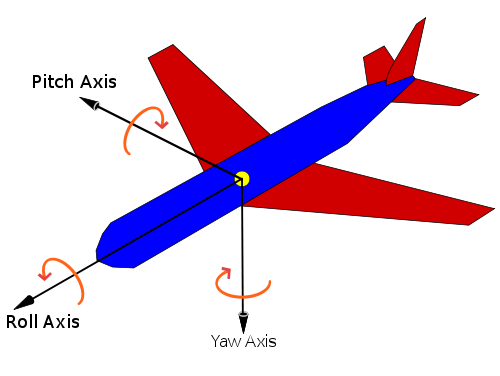class methods
- ofxAccelerometerHandler()
- exit()
- getForce()
- getMatrix()
- getOrientation()
- getRawAcceleration()
- setCallback()
- setForceSmoothing()
- setOrientationSmoothing()
- setup()
- update()
variables
This addon allows you access to the acceleromete on devices that support one. At the moment both Android and iOS are supported.
To get values from the accelerometer in polling mode, request them:
void testApp::setup(){
ofxAccelerometer.setup(); // this initializes the accelerometer
}
void testApp::update()
{
ofVec3f accel = ofxAccelerometer.getForce();
ofVec2f orientation = ofxAccelerometer.getOrientation();
}
To register an event handler for the accelerometer values changing, do something like the following:
ofAddListener(ofxAccelerometer.accelChanged,this,&ofApp::accelerationChanged);
exit()
void ofxAccelerometerHandler::exit()
Stops ofxAccelerometer from receiving updates from the underlying system.
getForce()
ofPoint & ofxAccelerometerHandler::getForce()
Gets the current smoothed accelerometer data (value in number of g's (1g = gravity, 9.8m/s^2). The smoothing prevents sudden spikes but can potentially make detecting gestures or other sudden moments difficult.
getMatrix()
GLfloat * ofxAccelerometerHandler::getMatrix()
This returns a 3x3 matrix with the following values set:
First column is gravity vector. Second column as an arbitrary vector in the plane perpendicular to the gravity vector {Gx, Gy, Gz} defined by by the equation "Gx * x + Gy * y + Gz * z = 0" in which we arbitrarily set x=0 and y=1. Third column as the cross product of the first two.
getOrientation()
ofPoint & ofxAccelerometerHandler::getOrientation()
Gets current orientation in degrees as an ofPoint (x: pitch, y: roll, z: not used).

getRawAcceleration()
ofPoint & ofxAccelerometerHandler::getRawAcceleration()
Gets current real accelerometer data (value in number of g's (1g = gravity, 9.8m/s^2)
setCallback(...)
void ofxAccelerometerHandler::setCallback(ofxAccelCB new_callback)
This allows you to set a callback that can be called whenever motion is detected.
setForceSmoothing(...)
void ofxAccelerometerHandler::setForceSmoothing(float forceSmoothing)
This sets amount of smoothing on force data (0: no smooth, 1:very smooth)
setOrientationSmoothing(...)
void ofxAccelerometerHandler::setOrientationSmoothing(float orientationSmoothing)
This sets amount of smoothing on orientation data (0: no smooth, 1:very smooth)
setup()
void ofxAccelerometerHandler::setup()
You must call setup() before polling ofxAccelerometer for force or orientation values.
update(...)
void ofxAccelerometerHandler::update(float x, float y, float z)
This is called by your underlying OS to update all the orientation matrices.
Last updated Friday, 02 May 2025 18:55:37 UTC - 0cfbc5eb74e8f627fe4da3fb60a3ee56ee64a172


If you have any doubt about the usage of this module you can ask in the forum.
If you want to contribute better documentation or start documenting this section you can do so here
If you find anything wrong with this docs you can report any error by opening an issue